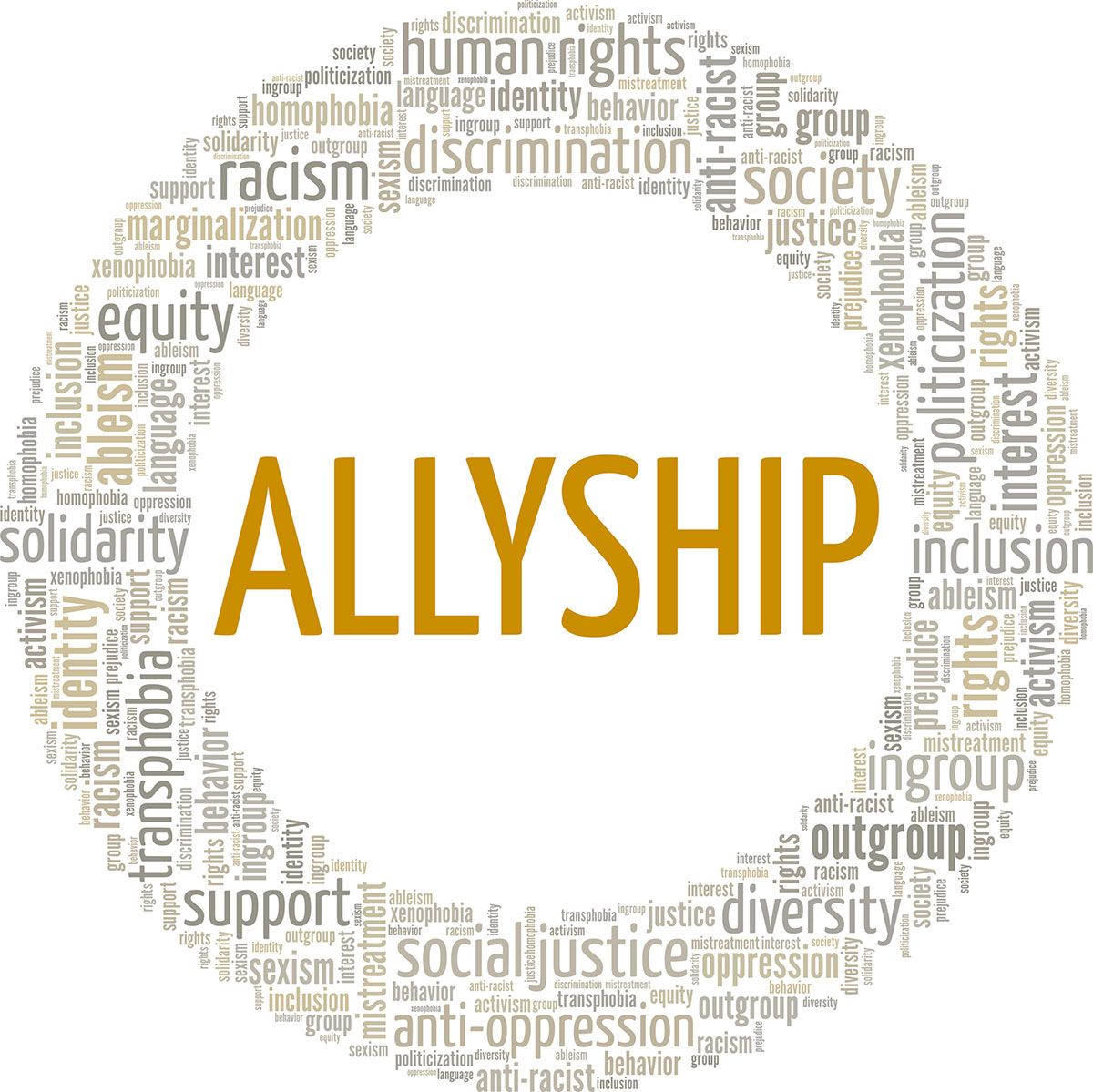How To Be an Ally in the Workplace

Diverse, equitable and inclusive workplaces are the goal more often than the reality. One inhibitor may be that employees underestimate the importance of active allyship in driving meaningful change.
What is allyship?
Allyship is the act of recognizing and using one’s power, position and/or privilege to uplift others. It is an active, consistent practice of self-reflection, learning (and unlearning) in which a person holding systemic power seeks to recognize and rectify the disadvantages that others experience as a result of structural injustice. Allyship is good for individual employees as well as companies. It helps to create a workplace where everyone feels a sense of belonging, equity and opportunity. Allyship is also good for business in that it drives innovation, productivity, loyalty and profitability.
What do we mean by “privilege”?
“Privilege” refers to certain advantages, benefits or respect that an individual has by virtue of belonging to certain social identity groups. Social research scientist Peggy McIntosh likens it to “an invisible weightless knapsack of special provisions, maps, passports, codebooks, visas, clothes, tools and blank checks.” While many people recoil at the term “privilege,” we must acknowledge the invisible systems that confer dominance on some groups as a result of the systemic oppression and marginalization of others. And we must practice allyship to promote equal economic, political and social rights and opportunities and engender respect within and between communities and social groups.
How can allyship be practiced?
- Hone your listening skills. Don’t assume you know what others need or feel. Respect the lived experience of others, and learn by listening.
- Don’t assume you are entitled to space within the community for which you’d like to be an ally. Show respect for the sanctity of fellowship and shared experience.
- Don’t expect members of the affected community to bear the responsibility of teaching or caring for you as you begin to reckon with social injustice. They have carried enough of the burden and borne enough of the suffering.
- Remember that allyship does not mean leading or dictating. Share the power you hold as a result of your privilege.
- Don’t expect individual members of a particular marginalized group to speak on behalf of that entire group. Treat people as individuals, not spokespeople.
- Don’t try to represent the people you mean to ally with. Keep in mind the slogan “Nothing about us without us!” (Latin: “Nihil de nobis, sine nobis”), which conveys the idea that no policy should be decided without the full and direct participation of people who will be affected by that policy.
- Don’t tell others how to bleed. You have no right to dictate how injured people express their pain.
- Respect those who have come before you in the fight for social justice. The battle has been long and arduous and has cost many their lives.
- Don’t complain about how exhausted or emotionally drained you are by the fight for justice. Empathize with those who experience incessant oppression due to the inequities that are built into every societal system with which they interact.
- Get ready to do difficult, emotionally painful and introspective work, and be prepared to make mistakes. Fix those mistakes and keep going with a more informed perspective.
- As you learn, share your insights with others who hold privilege. (Remember that privilege is often invisible to those who possess it.)
- Don’t refer to yourself as an ally or brag about your allyship. Allyship is not a badge of honor or a role to be applauded, and performative activism is self-centered, inconsequential and offensive.
- Find inspiration in the words of The Reverend Dr. Martin Luther King: “Injustice anywhere is a threat to justice everywhere. We are caught in an inescapable network of mutuality, tied in a single garment of destiny. Whatever affects one directly, affects all indirectly.”
It’s up to people who hold positions of privilege to be active allies to those who are disempowered and marginalized. By taking tangible, ongoing actions that shine a light on and dismantle systems of oppression, allies can fight injustice and promote more inclusive, equitable workplaces.
*****
Many of the SunShower Learning courses offer specific actions you can take to be an ally. For example, in Disarming Microaggressions, Dr. Derald Wing Sue describes microinterventions that can be used to speak up and interrupt microaggressions. The Ouch! techniques can also be used to defuse stereotypes.
Article written by Gina Miller: Gina Miller has committed herself to social justice for over a decade through her writing and community activism. She and her husband have led educational programs, service projects, dialogue workshops, blogs and rallies through the Hilton Head MLK Committee for Justice, their nonprofit organization in the heart of the historically significant South Carolina Lowcountry.

